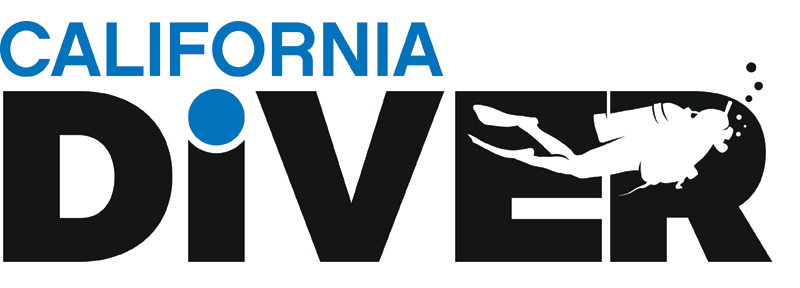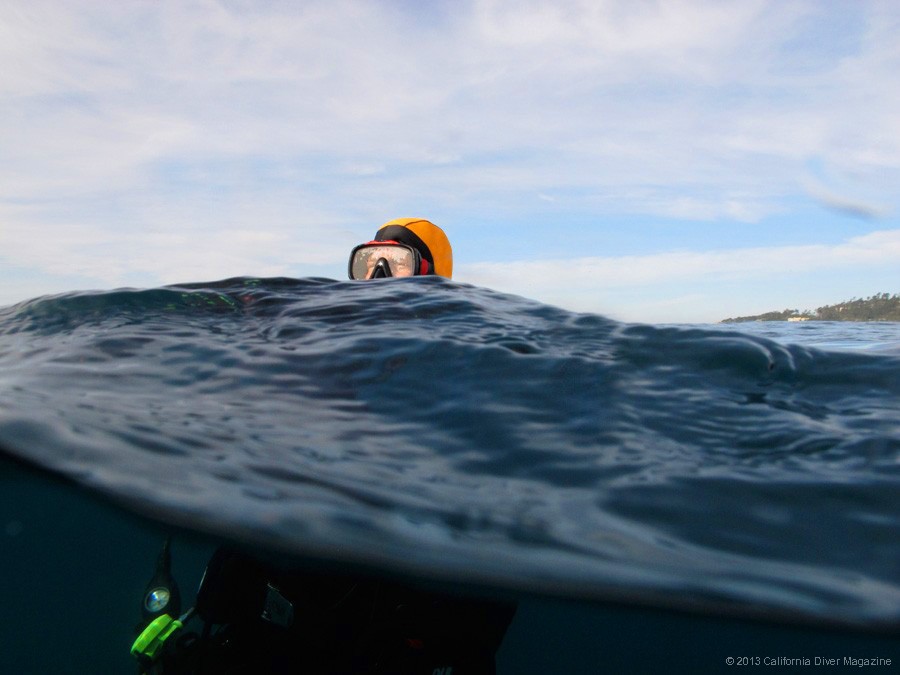I was fifty-two years old when I discovered SCUBA. It was a classic case of “love at first breath.” I couldn’t get enough. I chain-smoked my way through one training event after another. In six months’ time, I was three dives away from completing my PADI Master Scuba Diver course. I needed a couple deep dives, so I grabbed a last-minute spot on a trip to the Channel Islands that advertised an on-board instructor as one of its perks. I packed eagerly—expecting to knock off a couple deep dives, while making a big push toward the fifty logged dives needed for the Divemaster program I planned to enter that summer.
As things turned out, the on-board instructor had his hands full with three open-water students who could barely swim. I annoyed the frazzled instructor into doing a deep dive before breakfast on the second day of the trip. We did a mini-orientation and agreed to meet at the bowline. When I was done gearing up, the instructor was already in the water headed for the line. I made the jump, surfaced, and then gave the “ok” sign to the first mate on deck, who said, “get a move on, your buddy dropped in.”
“This sucks,” I thought to myself, as I turned head down and started jamming for deep water. At sixty feet, I caught sight of my instructor’s bright blue tank disappearing into total darkness far below me. I should’ve called the dive immediately, but I didn’t. I started kicking, hard. I knew nothing about deep diving back then. I was at least ten pounds over-weighted, and about to learn the hard way.
I flew past the anchor, the top of the pinnacle, and the last of the daylight. It felt like I was flying. When my chest started to crush, I knew two things: 1) I’d forgotten to inhale, and 2) I was way too deep. I flipped right side up, started kicking, and hit the inflator button on my BC—hard. Nothing happened. I was still falling, and falling fast. That’s when I saw the white sand of a small ledge. It was about three feet by six feet, and I was going to miss it. I aimed for it like a torpedo and flipped, tank down, at the last second. Clang! I was alive, alone, way too deep, and in near-black water too dark to see my gauges.
Story by Everitt Gordon, independent contributor
I knew that if I dumped my lead, I’d never stop the ascent, so I hit my inflator button again (more gently this time), and very, very, slowly my BC started to fill. After a while, I gave up, and started climbing the pinnacle, hand over hand. It was a long way back to the anchor. I had no light, and no way to know how much air was left. Finally, my BC expanded enough for me to get close to neutral buoyancy. It got light enough to see. I looked at my pressure gauge, and realized that I was screwed. I stopped breathing from my tank, put my BC’s inflator in my mouth, and started breathing the air in the BC. I knew I’d be dumping that air later, so I’d better breathe it now.
I made it to the anchor line breathing off the BC and started up. When I started floating, I began to exhale into the water, instead of back into the BC. At sixty feet, the air went stale, and I switched back to the tank. I had 200 PSI. I breathed 50 PSI at 60 feet, 50 PSI at 30 feet and 50 PSI at 15 feet, then surfaced, as slowly as I could. I should’ve ended up bent, but by some miracle, I was ok.
Back on the boat, I found my instructor in his cabin. He’d never made the dive. I had stupidly followed the wrong blue tank into oblivion, and nearly killed myself, while he was changing the batteries on his computer. His computer flooded on the next dive and never worked again.
I was so ashamed of my own stupidity that I never told anyone what happened. I’d set my computer to gauge mode to check my fill pressure, and had forgotten to change it back, so I had no record of my dive profile. Had I, indeed, gotten bent, there would have been no information with which to calculate a decompression schedule. Even I didn’t know how deep I’d been, how long I’d been down, or how fast I came up.
I was never the same after that dive; I lost my confidence. I felt as though I couldn’t trust myself. I fumbled forward, took the “Go Pro” challenge, and became a Divemaster and then an Assistant Instructor…but I felt like nothing went right. My confidence slid even further.
Looking back, I did one thing right that day. I complained loud and hard at the boat crew when they refused to top off a short fill. I told a deck hand that this was a deep dive and I was starting with a full tank—even if I had to get the captain to fill it. That extra 200 PSI saved my life, and it almost didn’t make it into my tank.
The thing that almost killed me that day wasn’t any one specific mistake. It was pride—a misguided, vain pride. It bespoke the ego that made me value plastic cards over real life experience. It was the kind of pride that coaxes you into concealing an embarrassing mistake. However, I am happy to say that I no longer have that type of pride. It died that day. Down there in the dark, there wasn’t enough air for the both of us, so I left it behind.
I have a new kind of pride now…a pride driven by the fact that I’m a better person today. The kind of person who values humility over ego, who admits his errors, and is willing to work to improve. I still love diving. Now I realize, though, that I love life even more.
Story by Everitt Gordon, independent contributor

